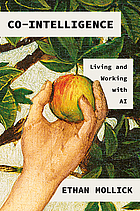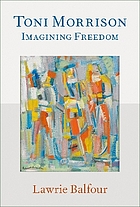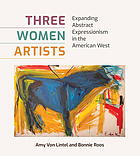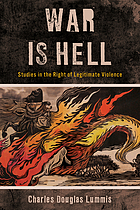Here is The Friday List! Every week, new books are arriving at RLB Library and to keep you up-to-date on what has come in, we’ll be posting the most recent 30 days of arrivals every Friday. The link below will take you to a catalog listing so that you can explore and find titles that interest you. Be sure to check back regularly to see what else has arrived!
THE FRIDAY LIST
If you want some ideas on what to read, here are some highlights, which can be found in the New Books kiosk by the information desk on the first floor of the library (eBooks can be accessed through the RLB website):

Co-intelligence : living and working with AI, Ethan Mollick, 2024
From Wharton professor and author of the popular One Useful Thing Substack newsletter Ethan Mollick comes the definitive playbook for working, learning, and living in the new age of AI The release of generative AI-from LLMs like ChatGPT to image generators like DALL-E-marks a new era. We have invented technologies that boost our physical capabilities and others that automate complex tasks, but never, until now, have we created a technology that can boost our intelligence-with an impact on work and life that researchers project will be greater than that of steam power or the internet. Mollick urges us not to turn away from AI, and instead to invite AI tools to the table. He demonstrates how AI can amplify our own capacities, acting in roles from brainstorming partner to cowriter to tutor to coach, and assesses its surprising, positive impact on business and organizations. Marshalling original research from workers and teams who are leading the rest of us in embracing and leveraging AI, Mollick cuts through the hype to make a frank and eye-opening case for the real value of AI tools. Moreover, Mollick argues that the long-term impact of AI will be different from what we expect, advantaging English majors and art history experts more than coders, and impacting knowledge workers more than blue-collar workers. Co-Intelligence shows what it means for individuals and for society to think together with smart machines, and why it’s imperative that we all master that skill. Co-Intelligence challenges us to utilize AI’s power without losing our identity, learn from it without being misled, and harness its gifts to create a better human future. Thought-provoking, optimistic, and lucid, Co-Intelligence reveals the promise and power of generative AI.

Toni Morrison : imagining freedom, Katharine Lawrence Balfour, 2023
When Toni Morrison declares that she ‘can’t wait for the ultimate liberation theory to imagine its practice and do its work,’ she raises an issue at the heart of modern political thought: How should we understand freedom? And what does freedom mean in the shadow of racial slavery and colonialism? In this study of Toni Morrison’s writing, Lawrie Balfour explores Morrison’s reflections on the idea of freedom in her novels and nonfiction. While Morrison’s literary achievements are widely celebrated, her political thought has yet to receive the same attention. Balfour shows how Morrison’s writing illuminates the meanings of freedom and unfreedom in a democratic society founded on both the defense of liberty and the right to enslavement. Morrison’s fiction and meditations on the power of language challenge wishful notions of color-blindness and complaints that it is time to move beyond thinking and talking about race. Her attentiveness to the experiences of people ‘no one inquired of’ — especially her interest in the lives of black women and girls — reorients democratic study toward racial slavery, settler colonialism, and the ongoing processes of theft and domination instituted by these practices. Morrison’s writings kindle new forms of freedom-seeking that do not rely on the subjugation of others.

Three women artists : expanding abstract expressionism in the American West, Amy Von Lintel and Bonnie Roos, 2022
Offering a fresh perspective on the influence of the American southwest-and particularly West Texas-on the New York art world of the 1950s, Three Women Artists: Expanding Abstract Expressionism in the American West aims to establish the significance of itinerant teaching and western travel as a strategic choice for women artists associated with traditional centers of artistic authority and population in the eastern United States. The book is focused on three artists: Elaine de Kooning, Jeanne Reynal, and Louise Nevelson. In their travels to and work in the High Plains, they were inspired to innovate their abstract styles and introduce new critical dialogues through their work. These women traveled west for the same reason artists often travel to new places: they found paid work, markets, patrons, and friends. This Middle American context offers us a “decentered” modernism-demanding that we look beyond our received truths about Abstract Expressionism. Authors Amy Von Lintel and Bonnie Roos demonstrate that these women’s New York avant-garde, abstract styles were attractive to Panhandle-area ranchers, bankers, and aspiring art students. Perhaps as importantly, they show that these artists’ aesthetics evolved in light of their regional experiences. Offering their work as a supplement and corrective to the frameworks of patriarchal, East Coast ethnocentrism, Von Lintel and Roos make the case for Texas as influential in the national art scene of the latter half of the twentieth century.

War is hell : studies in the right of legitimate violence, C Douglas Lummis, 2023
War Is Hell approaches peace studies through a lens of political philosophy rather than cultural or psychological aspects of war and peace making. Lummis examines common arguments and assumptions by interrogating them under the bright light of logic, seeking to address the world as it is. Unlike the fiends of hell, in order to carry out the work of war effectively, humans need to be changed, as any military drill instructor (DI) knows. This book examines the various ways of enabling essentially peaceful humans to carry out the work of war: invoking the authority of the sacred, dehumanizing the enemy, attempting to limit war by just rules, asserting that there is no other way to establish order. It notes the price soldiers pay when these fictions collapse, forcing them to confront what they have done. Post-traumatic stress disorder (PTSD) is no recent problem, but dates to Euripides’s tale of the madness of Heracles. The book concludes by reviewing the theories of power of Hannah Arendt and Mohandas Gandhi. Indeed, war is hell, the great difference being that those who must carry out war are not fiends, but human beings.